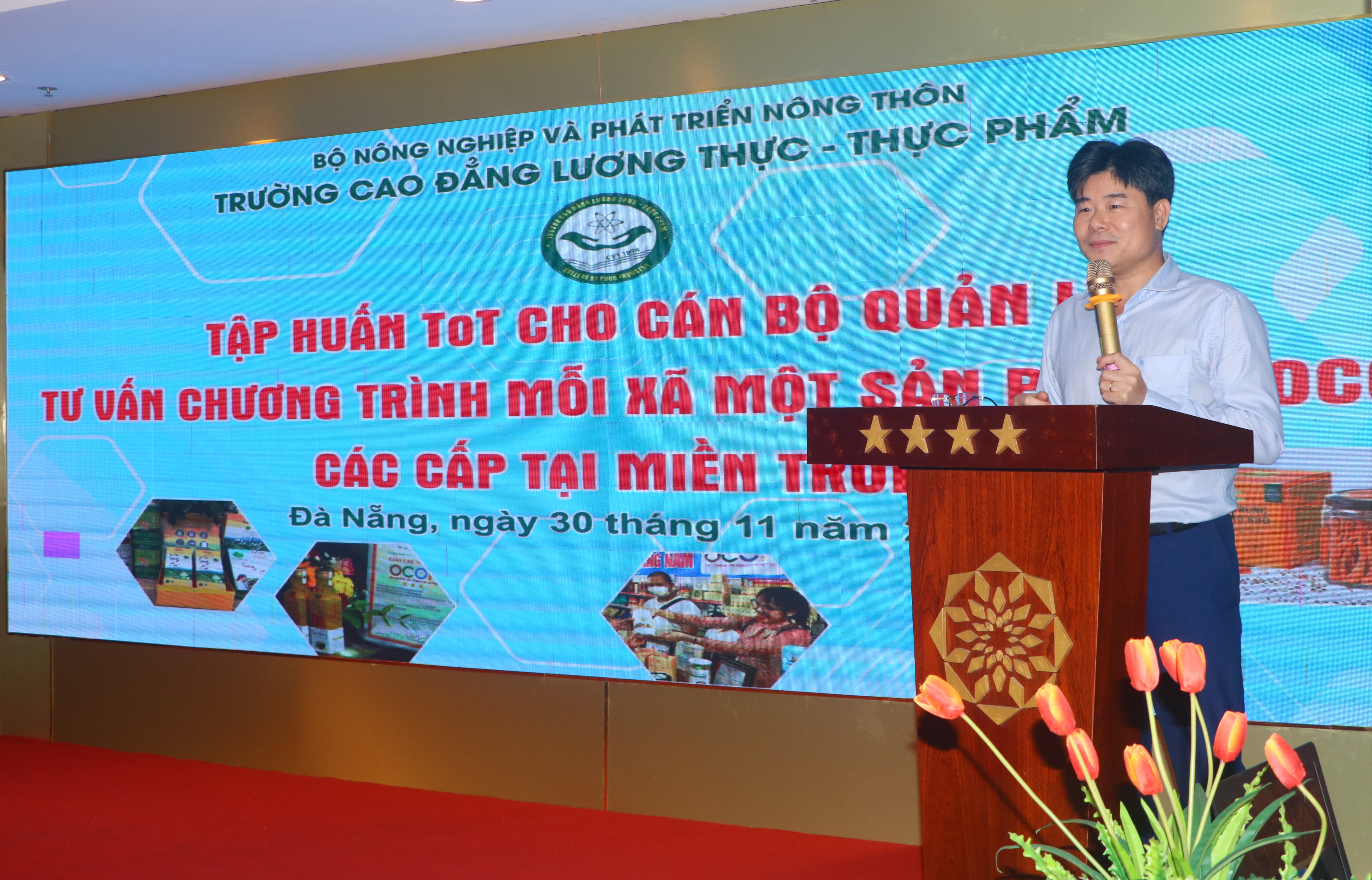ToT training for OCOP programme managers,consultants
The Central New Rural Coordination Office under the Ministry of Agriculture and Rural Development, in coordination with the Da Nang College of Food Industry, is running a ToT training programme for leaders, managers and consultants of the One Commune - One Product (OCOP) Programme at all levels of 19 provinces and cities in Central Viet Nam and Central Highlands.
 |
| Deputy Chief of Central New Rural Coordination Office Phuong Dinh Anh spoke at the opening of the training programme. Photo: PV |
Addressing the opening of the programme on Thursday, Deputy Chief of the Central New Rural Coordination Office Phuong Dinh Anh affirmed that the OCOP programme is the right direction to build and promote rural economic development. After five years of implementation, the OCOP programme affirms its compatibility with Viet Nam’s agricultural development orientation. Accordingly, many entities have improved their production capacity, recorded sustainable growth, and increased revenue with quality products with local characteristics; created connections, brands and community values. Therefore, in the process of carrying out work and management, units need to pay attention to avoiding distorting the value and nature of the OCOP programme.
In the 2021 - 2025 period, the implementation of the OCOP programme has raised the issue of forming on-site raw material areas. It is necessary to enhance the value of local products and promote community values. In particular, attention should be paid to the issue of building the OCOP product story because this is a key factor enhancing the value of the product.
The training programme is taking place from November 30 to December 2. At the programme, managers and consultants are introduced to the basic contents of the OCOP programme; set of criteria and process for evaluating and classifying OCOP products; the development of the OCOP product value chain associated with local raw material areas; the issues of intellectual property, knowledge of food safety and promotion of OCOP products. In addition, delegates also had a chance to visit some typical OCOP models.
According to a report at the training programme, to date, there are 10,323 OCOP products labeled 3 stars or higher nationwide. The programme has awakened the potential and strengths of localities in specialty products and rural industries; gradually converting small-scale production to production in the direction of linking a closed value chain, associated with the role of cooperatives and enterprises; contributing to creating jobs for workers, promoting rural economic development, especially enhancing the role of women and ethnic minorities; preserving and promoting traditional craft villages and cultural values for the sake of the development of rural economy and tourism.
Reporting by VAN HOANG - Translating by A.THU








